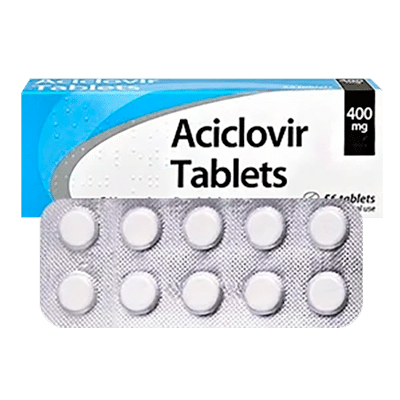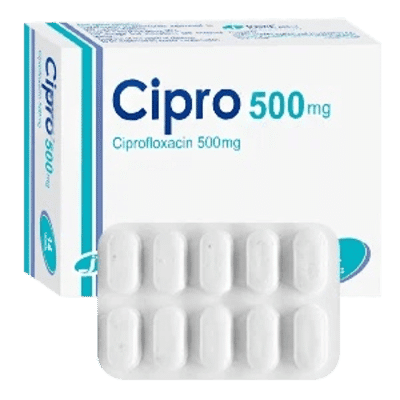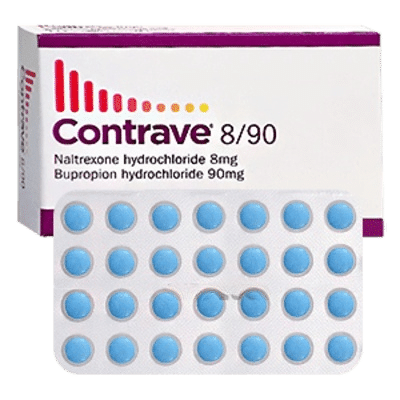Ive been using Aciclovir for several years now, as prescribed by my doctor, to treat herpes. It effectively manages flare-ups, and symptoms resolve significantly faster. The only downside is that I have to take it several times a day.

Aciclovir
- Quality products
- Support 24/7
- Fast delivery
About this medicine
Aciclovir is a synthetic antiviral drug with a molecular structure similar to purine nucleosides. It is used to treat viral infections such as cold sores, genital herpes, chickenpox, and shingles, caused by the herpes simplex and varicella zoster viruses, respectively. Although to a lesser extent, Aciclovir is also effective against the Epstein-Barr virus and cytomegalovirus. The drug is particularly useful for people with weakened immune systems, as it prevents the spread of viruses and minimizes the risk of developing serious infections. Aciclovir can also reduce the duration of pain after ulcers heal.
Composition of the medicine
The drugs main components are synthetic compounds designed to inhibit the growth and reproduction of viruses.
- The active ingredient is acyclovir, which directly acts on viruses, preventing their reproduction.
- Inactive excipients that ensure stability and solubility, such as lactose, corn starch, and magnesium stearate.
- Complexes responsible for the proper absorption of the drug by the body, such as povidone and sodium starch.
These elements work together to ensure the drugs maximum effectiveness, helping to quickly combat viral infections and prevent their potential development in the body.
Usage and dosage
Proper use of Aciclovir is especially important for achieving the best results. The medication can be taken with or without food, and the usual dosage is 2 to 5 times daily, depending on your doctors recommendation.
- Before taking this medication, carefully read the instructions and follow your doctors instructions.
- The medication should be taken orally with a full glass of water to facilitate its absorption.
- If you are prescribed a liquid form of the medication, shake it well before each dose and measure the dose using a special measuring device.
- The dosage is determined based on the condition, the bodys response to treatment, and, for children, body weight.
It is recommended to take the medication regularly and not increase the dose without consulting a doctor.
How does this medicine work?
Aciclovir works by blocking an enzyme that viruses use to replicate, slowing the growth and spread of the virus within the body. This gives the body more time to develop an immune response.
For people with viral infections, such as herpes, this means a reduction in the severity and duration of symptoms. Aciclovir prevents the virus from spreading to new cells, thereby reducing the overall number of viral particles in the body.
An important feature of the drug is its ability to prevent the development of secondary infections, making it indispensable in the treatment of patients with weakened immune systems. The drug also promotes rapid healing of ulcers, significantly improving the patients quality of life.
Indications for use
Aciclovir is used to treat and prevent various viral infections. Its broad range of indications allows it to be used for a wide range of viral diseases.
- Treatment of labial and genital herpes caused by the Herpes simplex virus.
- Treatment of chickenpox and shingles associated with the Varicella zoster virus.
- Prevention of infections in immunocompromised individuals, including reducing the risk of viral spread.
- Support for patients suffering from the Epstein-Barr virus and cytomegalovirus.
These diseases, when treated promptly and correctly, significantly reduce the risk of complications and promote rapid recovery.
Contraindications for use
Like any medication, Aciclovir has contraindications that must be considered before starting treatment. The drug may be contraindicated in a number of cases.
- Intolerance or hypersensitivity to acyclovir or Valtrex.
- Previously documented allergic reactions to any of the drugs components.
- Severe kidney disease or renal failure, which require special caution when using the drug.
- Pregnancy and breastfeeding require mandatory consultation with a doctor before starting treatment.
These factors are important to consider to avoid potential health risks and ensure maximum safety when using the drug.
Side effects
Side effects with Aciclovir are generally rare, but if they occur, consult a doctor.
- The most common are allergic reactions, which may manifest as a rash, itching, or facial swelling.
- Central nervous system effects may include dizziness, confusion, and sometimes hallucinations.
- Some patients may experience changes in urine tests or kidney problems.
- Previously known allergies to Aciclovir components may worsen; special attention should be paid to the condition of the skin and mucous membranes.
- Mild and temporary effects such as nausea, headache, or gastrointestinal upset are more common.
Despite this, most side effects are temporary and resolve spontaneously after discontinuing the drug.
Frequently asked questions
Aciclovir Reviews and Experiences
I tried Aciclovir after a dermatologist recommended it for treating viral-related rashes. The medication worked perfectly—the inflammation completely subsided by the third day of use, and I didnt notice any side effects.
After my doctor prescribed Aciclovir to treat shingles, it helped relieve severe symptoms. Rapid pain relief allowed me to return to my normal lifestyle. I was pleased with the lack of side effects and recommend it to anyone facing a similar problem.








